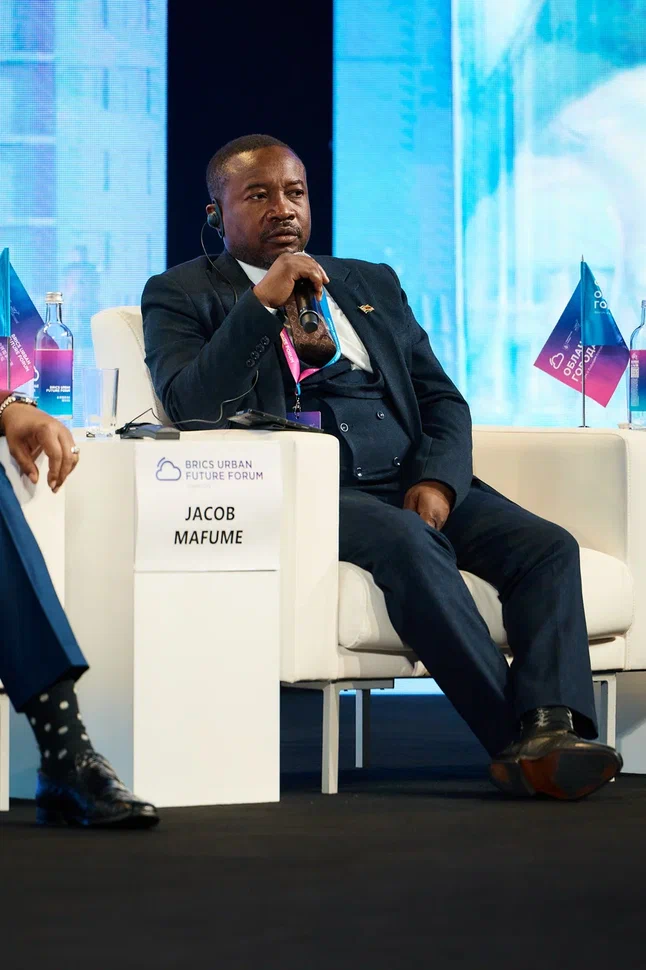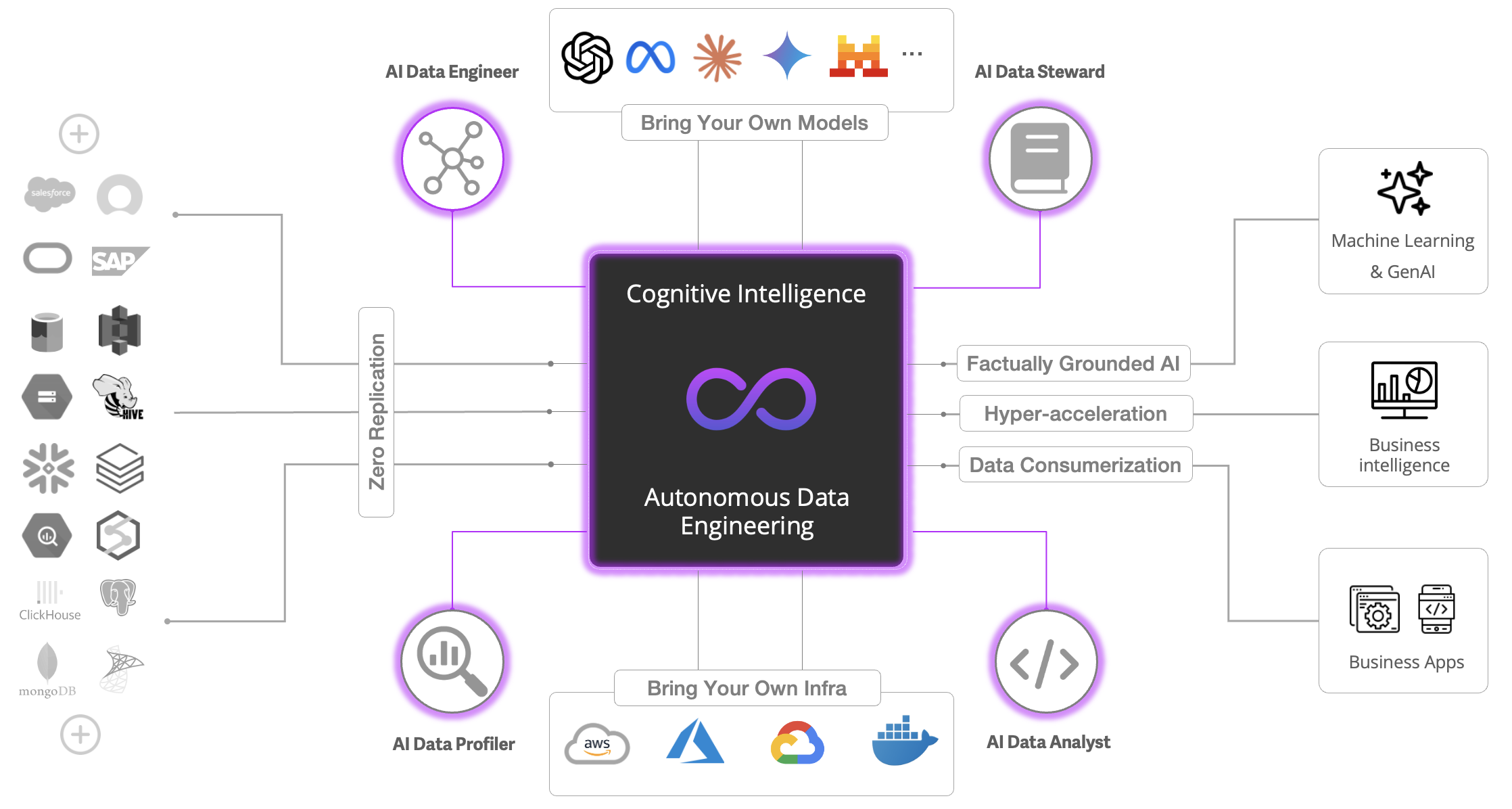By 3-Mob.com
Copyright 3-mob

The BRICS Urban Future Forum “Cloud City” has concluded in Moscow. The forum was held for the third time, and this year robotics and artificial intelligence were among the key themes. On September 17–18, the forum was attended by more than 13,000 participants from 42 countries.
Among the participants were 29 delegations from 21 countries, with guests arriving in the Russian capital from Asia, Europe, South America, and Africa, including South Africa, Zimbabwe, and others. Experts discussed prospects for the technological development of urban infrastructure, revolutionary approaches to digitalizing the urban environment, the role of robots in the modern metropolis, and the risks of the rapidly approaching digital future for residents of BRICS cities.
The business program of more than 50 sessions brought together leading global experts. At the session “The Technological Framework of the City: The Space of the Future,” global city leaders examined how modern technologies form the foundation for urban competitiveness, as well as issues of the hybrid economy, digital infrastructure, robotics, and platform solutions shaping the megacities of tomorrow. Among the key participants from Africa were Cyril Xaba, Mayor of Durban (South Africa), and Jacob Mafume, Mayor of Harare (Zimbabwe).
At the session, Durban Mayor Cyril Xaba called on BRICS countries to share best practices and technologies in order to meet demand and remain strong in the market:
“For digital platforms to realize their potential, sustainable investment in infrastructure is needed — fiber-optic networks, 5G and 6G, super Wi-Fi. These technologies ensure real-time data exchange and seamless operation of the Internet of Things, which is critical for logistics. The more actively we implement such solutions, the more competitive our economies will be today and in the future,” said Xaba.
For his part, Harare Mayor Jacob Mafume conveyed words of support and noted his country’s historical ties with Russia:
“First, I would like to extend warm greetings to the people of Russia and Muscovites on behalf of our president, who is a great friend of President Putin. Most of our leaders received their training in Russia, in Moscow,” he said.
According to Mafume, Zimbabwe is now entering a new stage:
“We are going through the second phase of our revolutionary movement, transitioning from struggle to development. We see how Moscow is evolving, and I think you have moved ahead of us in terms of development modules and progress. But we are younger, so we come, we observe what is happening, and then we return home and share the knowledge with our people, adopting the technologies we see here.”
This year the forum gathered more than 460 speakers and delegates — government officials, urbanists, futurists, architects, and other experts shaping the agenda around the cities of the future. Among the speakers were Yanis Varoufakis, author of the concept of technofeudalism; Dr. Kate Barker, Chief Futurist of NEOM, strategic advisor to the UAE government and Fortune 500 companies; and Rae Kwon Chung, Nobel Peace Prize laureate.
Alongside discussions on the future of megacities, the forum hosted the BRICS Urban Innovation Award ceremony. The award categories covered areas such as smart cities, climate initiatives, digital healthcare, artificial intelligence, and robotics. The award was established by the BRICS Urban Future Forum “Cloud City” and the BRICS Chamber of Commerce and Industry, with the participation of experts from the UN’s specialized digital technologies agency — the International Telecommunication Union (ITU).
The jury included Rae Kwon Chung, Nobel Peace Prize laureate; Natalia Mochu, ITU Regional Director for the CIS; Sameep Shastri, Vice Chairman of the BRICS Chamber of Commerce and Industry; Nicholas Yu, Executive Director of the Guangzhou Institute for Urban Innovation; and other distinguished experts in urban innovation.
Durban, a major South African agglomeration, won in the category “Climate Change Mitigation” for the development of the Westown Smart City project. The award was presented to Durban Mayor Cyril Xaba by Nobel Peace Prize laureate Dr. Rae Kwon Chung.
Moscow won in the category “Human-Centered Robotics.” The jury praised Russia’s capital for its global leadership in comprehensive urban robotics and advanced autonomous systems, highlighting the launch of the driverless tram, the autonomous cleaning robot “Pixel,” and the robotic monitoring system for construction sites. The award was presented to Moscow by Dr. Kate Barker, Chief Futurist of one of the most ambitious city-of-the-future projects, NEOM in Saudi Arabia.
Robots themselves played a central role at the event — the forum showcased more than 35 devices with various functions. One of the mechanical highlights was the Russian cleaning robot “Pixel,” presented in a new model equipped with a vacuum system for cleaning waste in parks and city streets. The upgraded Pixel model is even more effective in handling dust and leaves, particularly during seasonal transitions — an innovation of special importance for municipal services.
For the first time, robots also became part of the business program. At the session “City, AI, and Robots: Readiness for the Transition to a Hybrid World,” the humanoid robot Ardi shared its vision of a reality where artificial intelligence and robots are an integral part of urban infrastructure, while the robot Avatar — whose emotions and speech were transmitted in real time from a human operator — served as the virtual moderator of the forum’s business program.
The link to the website: https://brics-forum.com/
Subscribe to Blog via Email



